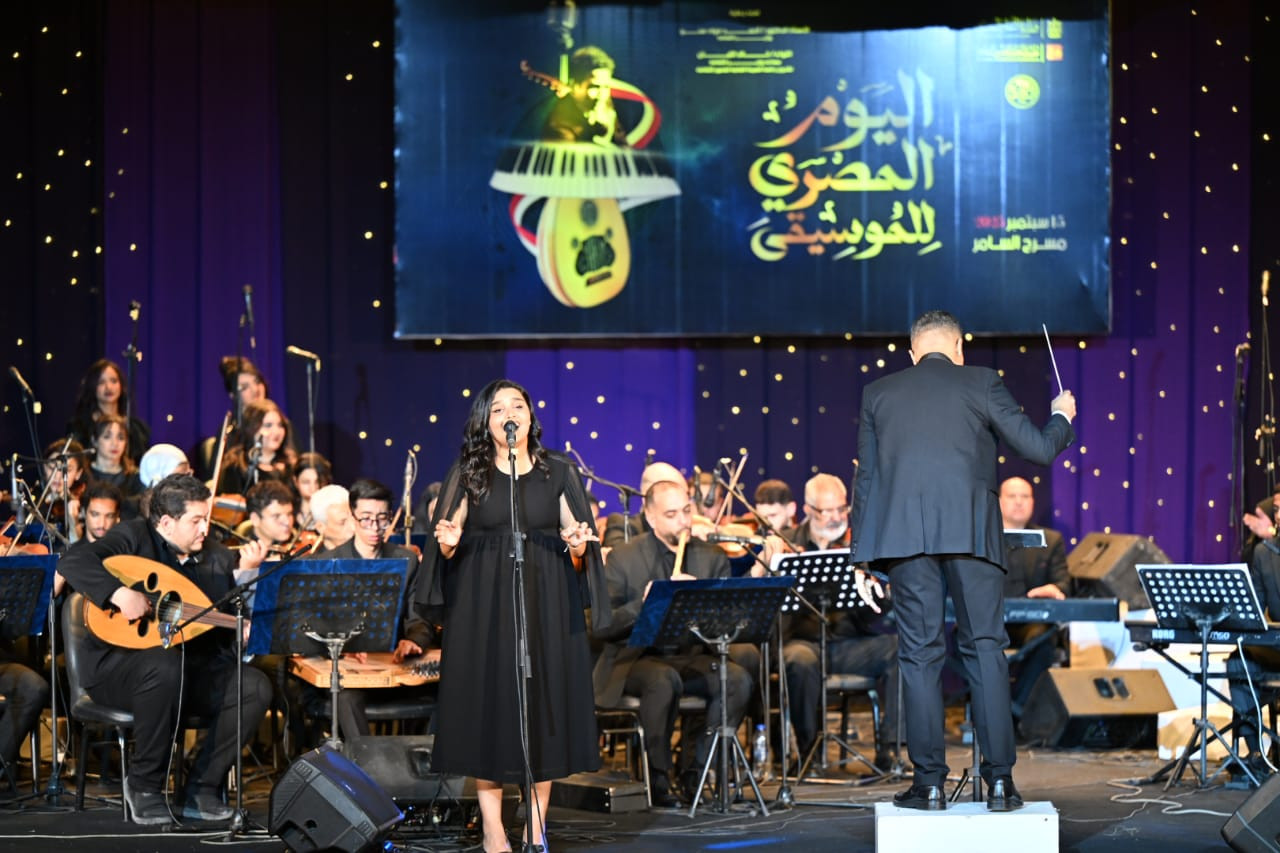Nearly a century after his untimely death, the voice of Sayed Darwish still reverberates across Egypt in the verses of the national anthem he composed, Belady, Belady (My Homeland, My Homeland, 1923), as well as the countless songs that helped define a modern Egyptian identity. This year, the country chose to honor him by dedicating an annual national day to Egyptian music on 15 September.
Egyptian Music Day, inaugurated by the Ministry of Culture and proposed by the National Centre for Theatre, Music, and Folk Arts. Founded in 1980, the centre preserves Egypt’s artistic legacy through archiving, documentation, and research.
Darwish, also known as “Fannan Al-Shaab”, meaning the people’s artist, was born in Alexandria in 1892 and died on 15 September 1923 at only 31. He was widely hailed as the father of modern Egyptian music. His genius was evident in his ability to bridge worlds and merge classical Arab musical traditions with the popular melodies of the street and stage. By doing so, he created a sound that was at once deeply rooted and boldly new, laying the groundwork for generations of composers and performers who followed.
The event is aimed at elevating music as a central pillar of cultural memory and soft power, affirming that Egypt’s musical heritage continues to influence how the nation perceives its identity.
The program was anchored in the Small Hall of Cairo’s Opera House with a performance by the National Centre’s choir and orchestra, followed by a revival of the beloved puppet operetta El-Leila El-Kebira (The Big Night, 1961). The operetta was written by poet Salah Jahin, with music composed by Sayed Mekawy, a testament to the playful, populist spirit Darwish helped unleash.
During the celebration, the Culture Minister Ahmed Fouad Hanno honored several prominent figures for their contributions to Egyptian music. The honorees included the late composer Sayed Mekawy, Rageh Daoud, Tawfiq Fouda, Nesma Abdel Aziz, Ali Saad, and veteran singer Fatma Eid.
“In the eras of ancient Egyptians, musical instruments were part of daily life; they resonated with the farmer, accompanied the chants of priests in temples, and were present at festivals and celebrations,” Hanno said.
He noted that on the walls of temples, musical instruments were depicted as symbols of sanctity, serving as a language of human expression in rituals and occasions, and as a source of joy in everyday life.
“From here, our ancestors began art and valued it, and from them the arts and sciences spread to the entire world,” Hanno continued.
The inaugural celebration stretched far beyond a single concert. More than 100 events unfolded across 80 cultural venues nationwide, with concerts, exhibitions, panel discussions, and theater performances taking place simultaneously in every governorate, alongside free admission to museums.
Downtown Cairo’s passages, including Baehler, Kodak, and Al-Alfi, pulsed with independent bands, bringing music into public spaces across the city. Citywide, cultural palaces from Alexandria and Aswan, to the Suez Canal and Sinai, staged concerts, folk ensembles, puppet theatre, and Bedouin troupes, ensuring the occasion resonated well beyond the capital.
Other venues in the capital cast a wide net. The Hanager Arts Centre spotlighted traditional folk instruments, including the mizmar, a traditional wind instrument, the rababa, a bowed string instrument, and a range of percussion, such as the tabla, hand-held drums, in a performance by the Nile Troupe for Folk Instruments, alongside a discounted book fair for music lovers.
Additionally, the Higher Institute of Arab Music staged a tribute to Umm Kulthum, the legendary singer who carried Darwish’s tunes into her own towering career. At Aisha Fahmy Palace in Zamalek, an exhibition titled The Voice of Egypt put her legacy on display through photographs, recordings, and archival materials.
The commemoration was also archival. The National Library and Archives mounted an exhibition of 22 reproductions of Darwish’s handwritten manuscripts, while cultural institutions like the Supreme Council of Culture and the Cairo Greater Library convened seminars and exhibitions to probe his influence more deeply.
The renowned composer, conductor, and pianist Omar Khairat, known for his work in film and orchestral music, wrote a special message for the occasion, delivered by Ahmed Ibrahim during the concert and read at several cultural venues.
“It gives me great joy and honor to share this celebration with my country and my people for the first time, on a day that enshrines a rich history, a vibrant present, and a promising future, while shedding new light on the legacy created by the pioneering composers, lyricists, musicians, and singers,” Khairat wrote.
According to Hanno, the event establishes Egyptian Music Day as an annual occasion for reflection and performance. In doing so, the ministry aims to sustain the legacy of Darwish and other musical pioneers, such as Mohamed El Qasabgi, Zakaria Ahmed, Mohamed Abdel Wahab, and Riad El Sunbati, while affirming music as one of Egypt’s most enduring cultural exports.







Comments (0)